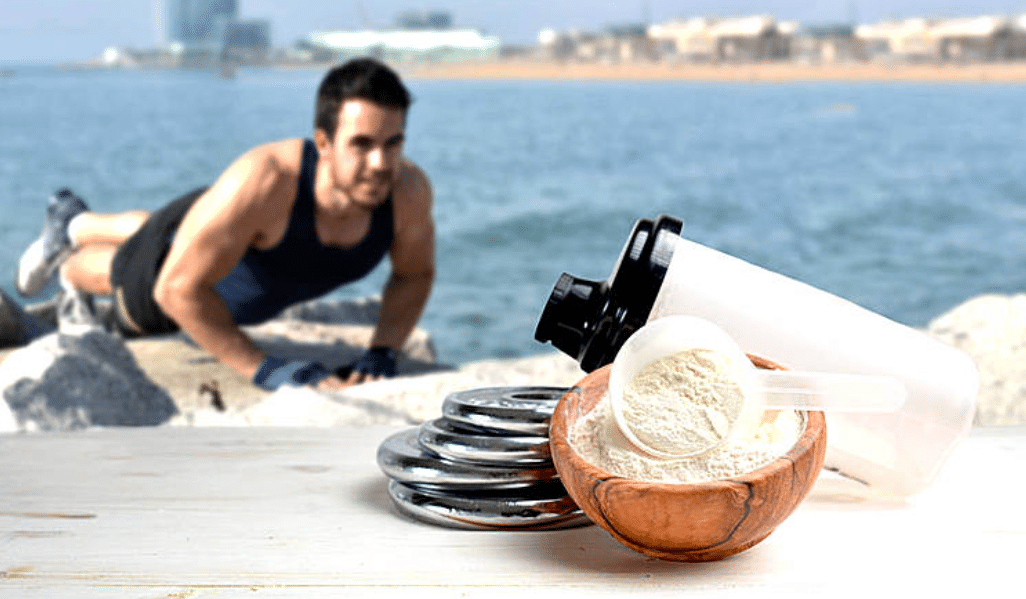Introduction
In the world of health and nutrition, Evening Primrose Oil (EPO) and Rice Protein are two popular supplements that cater to different needs. While EPO is known for its health benefits, particularly for skin and hormonal issues, Rice Protein serves as a valuable source of plant-based protein. This article will delve into the characteristics, benefits, uses, and potential side effects of both, helping you decide which may be more suitable for your lifestyle.

What is Evening Primrose Oil?
Evening Primrose Oil is derived from the seeds of the evening primrose plant (Oenothera biennis), a wildflower native to North America. The oil is rich in gamma-linolenic acid (GLA), an omega-6 fatty acid that plays a crucial role in various bodily functions. EPO is typically available in liquid form or as capsules and is widely used for its medicinal properties.
Health Benefits of Evening Primrose Oil
- Skin Health: One of the primary uses of EPO is to improve skin conditions. Its high GLA content helps maintain skin moisture, reduces inflammation, and promotes overall skin health. Many people use it to alleviate symptoms of eczema, acne, and psoriasis.
- Hormonal Balance: EPO is often recommended for women experiencing premenstrual syndrome (PMS) and menopausal symptoms. The GLA in the oil can help regulate hormonal fluctuations, potentially reducing mood swings, breast tenderness, and other discomforts.
- Anti-Inflammatory Properties: EPO has anti-inflammatory effects that may benefit those with chronic inflammatory conditions, such as arthritis. By reducing inflammation, EPO can help alleviate pain and improve mobility.
- Cardiovascular Health: Some studies suggest that EPO may support heart health by improving blood flow and reducing cholesterol levels, although more research is needed in this area.
What is Rice Protein?
Rice Protein is derived from brown rice, a whole grain that is processed to isolate the protein content. It’s a popular choice among those looking for a plant-based protein source. Rice Protein is hypoallergenic, making it a safe alternative for individuals with dairy or soy allergies. It is often found in powdered form and can be easily incorporated into various foods and beverages.
Health Benefits of Rice Protein
- Muscle Building and Recovery: Rice Protein is an excellent option for athletes and fitness enthusiasts. It provides a significant amount of protein that supports muscle repair and growth after workouts.
- Digestive Health: Being gentle on the digestive system, Rice Protein is less likely to cause bloating or discomfort compared to other protein sources, such as whey or casein. This makes it suitable for individuals with sensitive stomachs.
- Weight Management: Incorporating Rice Protein into your diet can help with weight management. High-protein diets are known to promote feelings of fullness, which can reduce overall calorie intake.
- Nutritional Value: While Rice Protein is not a complete protein (lacking some essential amino acids), it is still rich in several vital nutrients and can be combined with other protein sources, such as legumes, to create a complete amino acid profile.
Nutritional Comparison
When comparing the nutritional profiles of Evening Primrose Oil and Rice Protein, it’s essential to consider their primary functions:
– Calories: Rice Protein typically contains more calories from protein than EPO, which is primarily composed of fats.
– Protein Content: Rice Protein is high in protein, often providing 20-25 grams per serving, while EPO does not contain any protein.
– Fat Content: EPO is rich in healthy fats, particularly omega-6 fatty acids, while Rice Protein has negligible fat.
– Vitamins and Minerals: EPO contains small amounts of vitamin E and other antioxidants, while Rice Protein provides essential nutrients, including B vitamins and minerals like magnesium.
Uses in Diets
– Evening Primrose Oil: EPO is commonly used as a supplement, either in capsule form or as a liquid. It’s often included in skincare products for its moisturizing and healing properties.
– Rice Protein: This protein is versatile and can be added to smoothies, protein shakes, and baked goods. It can also be used in soups or as a thickening agent in various recipes.
Who Should Use Them?
– Evening Primrose Oil: EPO is especially beneficial for women looking to manage hormonal imbalances, those with skin conditions, or individuals seeking anti-inflammatory support. It may also appeal to anyone interested in natural remedies for common health issues.
– Rice Protein: Ideal for vegans, vegetarians, and anyone needing to increase their protein intake without animal products. Athletes and fitness enthusiasts often choose Rice Protein for its muscle-building benefits.
Side Effects and Considerations
– Evening Primrose Oil: While EPO is generally safe, some individuals may experience mild side effects, such as digestive upset or allergic reactions. It can interact with blood-thinning medications, so it’s essential to consult a healthcare provider before use.
– Rice Protein: Rice Protein is typically well-tolerated, but consuming large amounts may lead to digestive issues, such as bloating or gas. As with any supplement, it’s best to follow recommended serving sizes.
Environmental Considerations
Both Evening Primrose Oil and Rice Protein have unique environmental impacts. Evening Primrose plants are often grown in natural settings, but intensive farming can affect local ecosystems. Rice production, while widespread, can have significant environmental implications, including water usage and greenhouse gas emissions. Choosing sustainably sourced options for both EPO and Rice Protein is essential for those concerned about environmental sustainability.
Conclusion
Evening Primrose Oil and Rice Protein are valuable supplements with distinct benefits. EPO shines in areas like skin health and hormonal balance, making it a go-to for women and those seeking anti-inflammatory support. On the other hand, Rice Protein is a fantastic plant-based protein source, ideal for muscle building, digestive health, and weight management.



